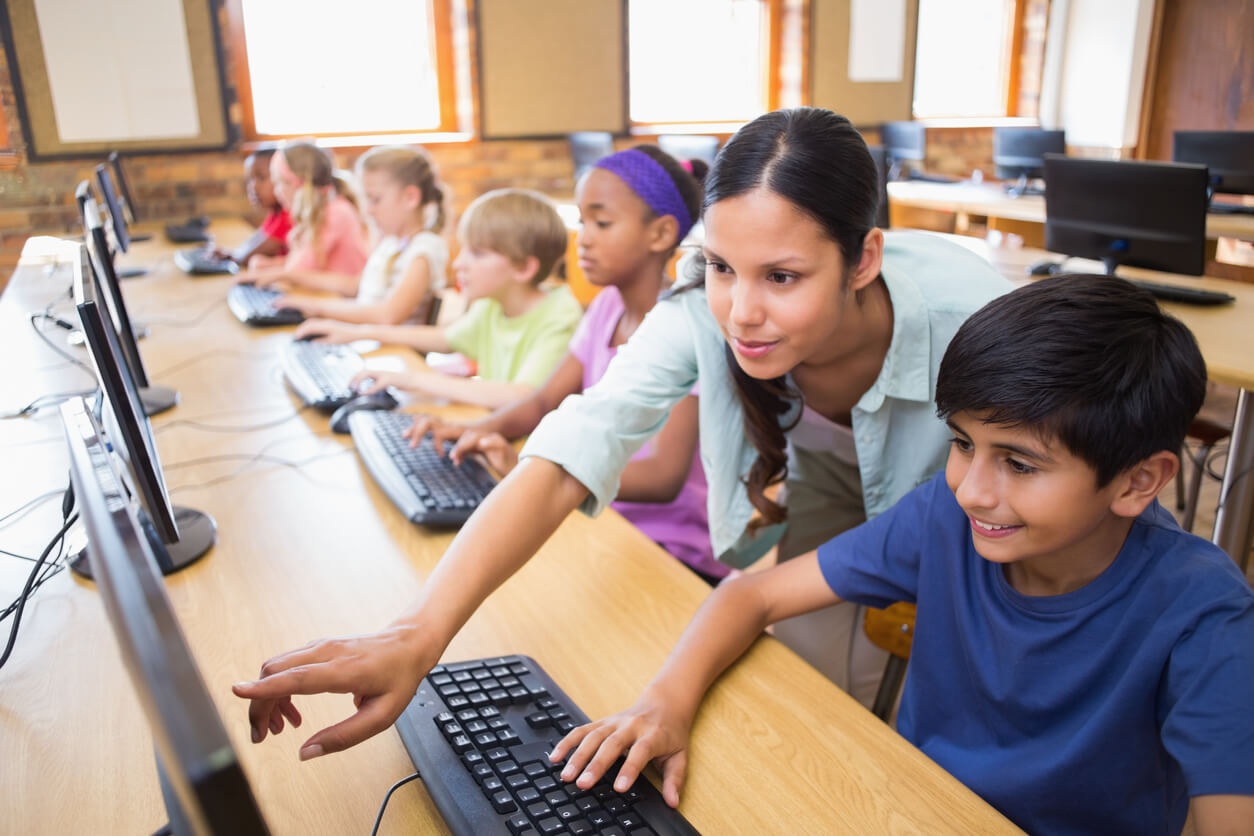To conclude the fourth stay of the Master’s Degree in Educational Entrepreneurship (MTO), the students graduating this cycle conducted a presentation session of their final projects at the Demoday “Edulmpacto.”
This Master’s degree program is the first of its kind in Latin America, being the only one focused on developing entrepreneurship within Education. Students have personal mentoring and international connections with institutions, as well as with other business, government, and civil society sectors. Graduates have the opportunity to put their projects into practice in formal education environments (from initial to postgraduate education) and also in the permanent learning or lifelong learning sector of talent in organizations, proposing solutions that improve different scenarios for learning.
The event was attended by special guests, including Roberto Domínguez, Associate Dean of Postgraduate of the School of Humanities and Education; Leonardo David Glasserman, Director of the Master’s program in Educational Entrepreneurship; Laura Tamez, postgraduate academic coordinator of the School of Humanities and Education (EHE), and César Manuel Sánchez, EdTech coordinator of the Institute for the Future of Education (IFE).
The three-professor team who worked together through the four stays comprised Luis Eduardo Luévano Belmonte, Enrique Berdichevsky Acosta, and Linda Elizabeth Ruiz Castro, who were in charge of directing and moderating the session.
Roberto Domínguez shared his enthusiasm for accompanying the students in their last session and encouraged them to begin their presentations. He assured them that reaching that level was evidence of their talents and knowledge, especially the competencies developed from learning.
“Today, we define ourselves by what we learn every day. Our notion of a postgraduate program changes and widens when what we know is what we allow ourselves to address: an issue that presses us and transcends us,” he stated.
Tec de Monterrey’s vision for 2030 focuses on the community’s well-being and training people for a more humane and innovative future. Students were invited to think about how these communities will benefit from their solutions, a way of incentivizing them to continue working on their projects at the end of the Master’s degree program.
What proposals did they present?
Denis Vázquez presented first with Eureka, an application for smart mobile devices aimed at primary education students (between 6 and 12 years old); it is a complementary tool to the educational experience in the classroom.
In Mexico, the primary school dropout rate is 27%, which translates into three million children dropping out yearly. Through market research, Eureka was designed to encourage curiosity and the desire to develop through meaningful learning and gamification exercises.
The functional prototype provides an idea of the tool’s operation. After the research, it was determined that infants need a visual and auditory incentive to stay within the app. The next phase of the application will include accompaniment by characters so that users feel identified. It will provide parents or guardians with statistics on the children’s learning progress.
Another project exhibited at the event was Rebel Business School Startup, created by Daniel Ángel Castro. The training program consists of 10 four-hour sessions explaining five ways to start a business without investment. Last year in Colombia, 307,000 new companies were created, of which only 38 startups received investments, equivalent to 0.01%. In Mexico, that investment percentage is the same.
From the first day, the participants are taught how to get clients through social networks and sell and achieve results until they sustain sales. This free hybrid program for the entrepreneur has some face-to-face sessions and two months of accompaniment. In this way, entrepreneurs can access this education with no-code tools and without compromising equity (the percentage of the company that is transferred in exchange for investment).
This business model of Rebel Business School Startup incorporates financing partners, be it companies, universities, non-governmental organizations, or government entities, which support the financing of 100% of the programs.
Víctor Fernel Guzmán presented another project, Apprende, a mobile application that only requires an Internet connection when downloading and then works without it. Oriented toward sustainable technology, the solution provides access to teaching tools and educational resources to rural and indigenous communities.
The student, originally from San Felipe Orizatlán in Hidalgo, observed that access to valuable content is scarce in highly vulnerable rural and indigenous areas, which leads children and families to decide to drop out of school to work. However, this tool allows the economic condition of the people not to be a limitation in obtaining an education.
The app was built specifically to address this type of scenario. It can operate on affordable mobile devices in vulnerable regions. The tool focuses on students in upper secondary education. Thus, the app is a digital disruptive learning methodology producing an excellent and self-managed training process.
To contribute to the social and educational development of the country, Apprende provides resources that foster virtual learning environments, motivates students through technology, and is adaptable to the reality and context of the communities.
Olivia Cuevas’ Inemo program was the closing project. Through workshops and activities in art therapy, music therapy, yoga, and mindfulness, students can attain a state of tranquility that allows them to self-regulate their behavior, get to know each other, and create a learning space. The pandemic increased the prevalence of anxiety and depression worldwide by 25%, the latter being the leading cause of disability, according to the World Health Organization.
The prototype designed by the Inemo program had the participation of 20 schools, where a video was shown with the objectives of the program and sample classes with activities. Two institutions requested a demonstration at their facilities. Through this tool, students, teachers, parents, and guardians can develop skills to manage their emotions efficiently and create positive results in their environments.
Projects presented during the Demoday were:
- Denis Vázquez – Eureka
- Gustavo Javier Páez – Bienestar 360 Wellbeing
- Daniel Mauricio Ángel – Rebel Business School Startup
- Janeth Ernestina Corral – Net teach
- María Fernanda Muñoz – Edu Part
- Víctor Fernel Guzmán – Apprende
- Melina Mena – Wellness Rewards
- Mariana Gómez – Alpha mind
- Jessica Janeth Garza – The teaching Co.
- Olivia Cuevas – Inemo Program
Leonardo David Glasserman, Director of the Master’s program in Educational Entrepreneurship, applauded the students for their work and highlighted the work of the team of teachers. He recognized the participants for their final presentations at the Demoday “EduImpacto.”
“You formed this community and are one of the first to graduate from this program. It gives us confidence that outstanding contributions will come to improve education through various contexts, whether social or economic, will be transformed. This academic cycle closes, but new reality begins for those people with minimal viable resources,” he indicated.
Translation by Daniel Wetta
This article from Observatory of the Institute for the Future of Education may be shared under the terms of the license CC BY-NC-SA 4.0 
)
)


)